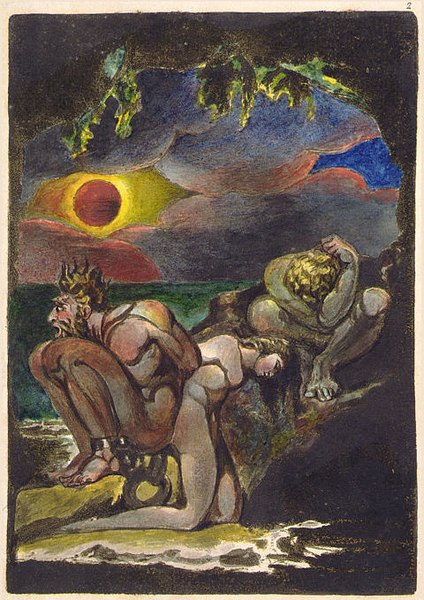Free love is a social movement that accepts all forms of love. The movement's initial goal was to separate the state from sexual and romantic matters such as marriage, birth control, and adultery. It stated that such issues were the concern of the people involved and no one else. The movement began during the 19th century and was advanced by hippies during the 1960s and early 70s.
The Adamites were a sect that rejected marriage. Pictured, they are being rounded up for their supposedly heretical views.
Title page from A Vindication of the Rights of Woman (1792), by Mary Wollstonecraft, an early feminist and proponent of free love.
Frontispiece to William Blake's Visions of the Daughters of Albion (1793), which contains Blake's critique of Christian values of marriage. Oothoon (centre) and Bromion (left) are chained together, as Bromion has raped Oothoon and she now carries his baby. Theotormon (right) and Oothoon are in love, but Theotormon is unable to act, considering her polluted, and ties himself into knots of indecision.
The Oneida Community was a utopian group established in the 1840s, which practiced a form of free love. Postcard of the Oneida Community Mansion House from 1907.
The Adamites, also called Adamians, were adherents of an Early Christian group in North Africa in the 2nd, 3rd, and 4th centuries. They wore no clothing during their religious services. There were later reports of similar sects in Central Europe during the Late Middle Ages.
1898 illustration by E. J. Sullivan, heading to "Adamitism", chapter IX of Sartor Resartus (1833–34) by Thomas Carlyle
The arrest of neo-Adamites in a public square in Amsterdam (Engraving from the mid-18th century).





